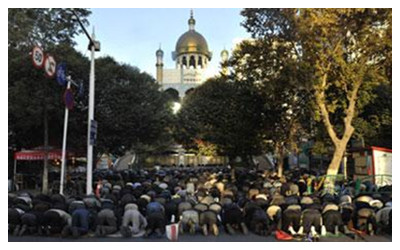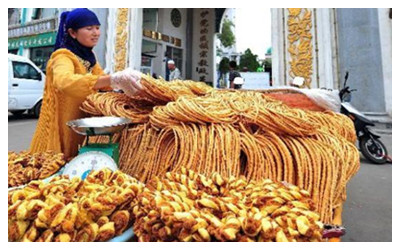Skype: neodalle-travel
Tel: +86 135 7447 2266
E-mail: sales@zhangjiajieholiday.com
 Before the advent of Islam in Arabia, there is mention of festivals as well as some others among the Arabs. The Israelites had festivals as well, but as is evident from the Old Testament and other scriptures, these festivals related more to commemorating certain days of their history. Eid al-Fitr was originated by the Islamic prophet Muhammad. It is observed on the first of the month of Shawwal at the end of the month of Ramadan, during which Muslims undergo a period of fasting.
Before the advent of Islam in Arabia, there is mention of festivals as well as some others among the Arabs. The Israelites had festivals as well, but as is evident from the Old Testament and other scriptures, these festivals related more to commemorating certain days of their history. Eid al-Fitr was originated by the Islamic prophet Muhammad. It is observed on the first of the month of Shawwal at the end of the month of Ramadan, during which Muslims undergo a period of fasting.
This festival expresses many of the basic values of the Muslim community; e.g., empathy for the poor, charity, worship, steadfastness, patience etc. Fasting is also believed by some scholars to extol fundamental distinctions, lauding the power of the spiritual realm, while acknowledging the subordination of the physical realm. It also teaches a Muslim to stay away from worldly desires and to focus entirely on the Lord and thank Him for his blessings. It is a rejuvenation of the religion and it creates a stronger bond between the Muslim and his Lord. After the end of Ramadan, there is a big celebration of Eid.
 In the People's Republic of China, out of 56 officially recognized ethnic groups, Eid al-Fitr is celebrated by at least 10 ethnic groups that are predominantly Muslim. These groups are said to total 18 million according to official statistics, but some observers say the actual number may be much higher. It is also a public holiday in China in certain regions, including two Province Prefecture Level regions, Ningxia and Xinjiang. All residents in these areas, regardless of religion, are entitled to either a one-day or three-day official holiday. Outside the Muslim-majority regions, only Muslims are entitled to a one-day holiday. In Xinjiang province, Eid al-Fitr is even celebrated by Han Chinese population during which holiday supplies of mutton, lamb and beef are distributed to households as part of welfare program funded by government agencies, public and private institutions, and businesses.
In the People's Republic of China, out of 56 officially recognized ethnic groups, Eid al-Fitr is celebrated by at least 10 ethnic groups that are predominantly Muslim. These groups are said to total 18 million according to official statistics, but some observers say the actual number may be much higher. It is also a public holiday in China in certain regions, including two Province Prefecture Level regions, Ningxia and Xinjiang. All residents in these areas, regardless of religion, are entitled to either a one-day or three-day official holiday. Outside the Muslim-majority regions, only Muslims are entitled to a one-day holiday. In Xinjiang province, Eid al-Fitr is even celebrated by Han Chinese population during which holiday supplies of mutton, lamb and beef are distributed to households as part of welfare program funded by government agencies, public and private institutions, and businesses.
 Ask Questions ?
Ask Questions ?